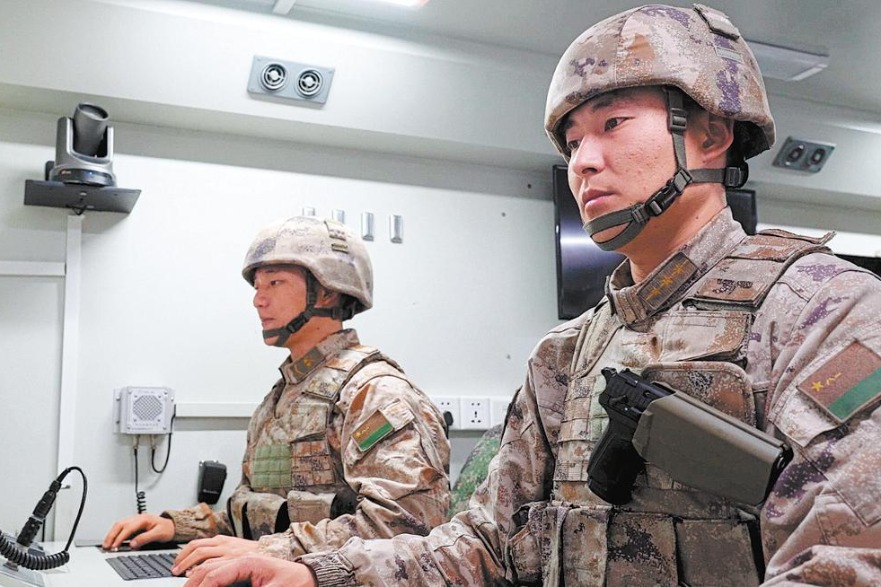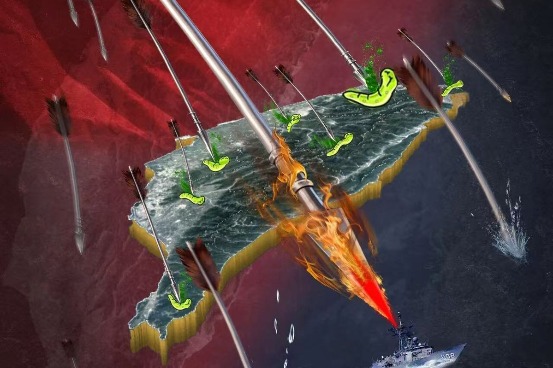Toward a multipolar world order
The multilateral strategy pursued by the countries of the Global South, advocated by both Egypt and China, could shape the future for developing countries


Cooperation between Egypt and China is taking a deeper and more comprehensive approach to enrich the South-South dialogues and promote the voice of the Global South. This was highlighted during the recent official visit of Chinese Premier Li Qiang to Cairo from July 9 to 10, directly after he attended the BRICS summit in Rio de Janeiro, Brazil. Egypt and China are both members of the United Nations, BRICS and G20. Their collaboration is a vivid example of championing the interests of developing countries amid the successive international crises facing the world.
Since the formation of the international order in the aftermath of World War II, developing countries have systematically suffered from structural imbalances at various levels. These include emerging challenges resulting from multiple and successive global crises, as well as the escalation of geopolitical and economic tensions to dangerous levels, especially during the current period. Unfortunately, Western double standards prevail in addressing many international issues related to the Global South. The ongoing Israeli military operations in the Gaza Strip are evidence of the bias of the international system led by hegemonic policies of the United States and the failure to address violations of international law, particularly with regard to implementing UN resolutions related to the recognition of the State of Palestine, considering this is the only solution for achieving comprehensive peace in the Middle East. This is something Egypt and China support in all international forums and is also encouraged by various countries of the developing Global South.
Egypt is one of the founding members of the Non-Aligned Movement, which supported the interests of developing countries during the Cold War. Its cooperation with China to strengthen the voice of the Global South under these critical circumstances is a true extension of the shared historical relations between the two countries. China and Egypt have become a model of solidarity, cooperation and mutual benefit. Since joining the UN, both Egypt and China have remained a strong voice, expressing the aspirations of the peoples of the Global South for freedom, development and peace, and are major contributors to the formulation of international policies based on multilateralism, equality and mutual respect. In addition, Egypt and China have been playing a historic role in defending the causes of developing countries, their ongoing pursuit of international justice and strengthening the voice of the Global South in global forums.
By integrating China's Belt and Road Initiative and Egypt's Vision 2030, China and Egypt continue to innovate new forms of cooperation and expand areas of mutual cooperation. This aligns with Egyptian President Abdel Fattah El-Sisi's strategy to advance Egypt in various fields and sectors with Chinese participation. In recent years, Egypt has been working to implement Egypt's Vision 2030, the Decent Life Initiative, the Digital Egypt Strategy and the National Climate Change Strategy 2050. Recently, Egypt officially launched the National Dialogue Strategy to foster rapprochement and openness among all. With Chinese assistance, Egypt is taking new and continuous steps to independently explore modernization through numerous Chinese development projects and opportunities, including the Suez Canal Economic Zone, the China-Egypt Special Economic Zone in Ain Sokhna and the Central Business District in Egypt's New Administrative Capital. These projects serve Egypt's interests through comprehensive strategic development, economic and investment partnerships with China.
China is the largest foreign investor in Egypt, contributing to numerous projects, such as the Central Business District project in the New Administrative Capital, the high-speed electric train project and the El Alamein City Towers project, among others. These projects represent real and new forms of pragmatic cooperation between China and Egypt, effectively promoting the implementation of global development initiatives in Egypt, contributing to supporting economic and social development on the Egyptian side, and training a large number of young Egyptian professionals and technicians. Economic cooperation between China and Egypt has increased, especially after the establishment of the China-Egypt Special Economic Zone in Ain Sokhna. China also provides concessional loans to Egypt to finance development projects, and Egypt participates in the Asian Infrastructure Investment Bank, of which China is the largest shareholder. Joint investment between the two countries has also witnessed a remarkable boom, especially after Cairo moved to encourage foreign investors with El-Sisi's recent economic reforms. As a result, most foreign investors who expanded their investments in Egypt were from China, a result of the strength of economic cooperation between the two countries.
From the Chinese perspective, Egypt is one of the most important countries supporting the voice of the Global South, given its position in the Arab and Islamic world and the Middle East as a major political and strategic player in the region. For China, Egypt serves as a bridge for dialogue with the entire Arab and Islamic world and the Middle East. Furthermore, Egypt occupies a key strategic location on major European and Asian trade routes, with the Suez Canal connecting the Mediterranean to the Red Sea and the Indian Ocean. Egypt is also the link, via the Suez Canal, between the markets of West Asia, North Africa and Southern Europe, representing a pivotal point in China's Belt and Road Initiative. This serves China's strategy of supporting dialogue among developing countries of the Global South.
Both Egypt and China have been a true part of all the changes witnessed by the Global South, such that the term itself has become an umbrella that captures the diversity witnessed by developing countries, raising development levels and enhancing economic capabilities. In the face of international double standards regarding issues of the Global South, the adherence to multilateralism among developing countries has emerged as a major development in the relationship between the countries of the Global South, and the poles of the current global order, led by Washington and its policy of conditional dictation in dealing with the issues of the countries of the Global South. This strategy aims at improving the negotiating positions of the countries of the Global South and better defending their interests through a network of multilateral cooperation with various international powers. It is expected that the multilateral strategy pursued by the countries of the Global South, advocated by both Egypt and China, will evolve toward a multipolar world order.
The author is a professor of political science at Beni Suef University, Egypt. The author contributed this article to China Watch, a think tank powered by China Daily.
Contact the editor at editor@chinawatch.cn.


































